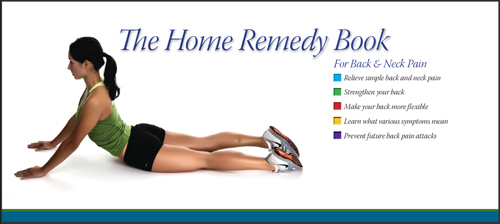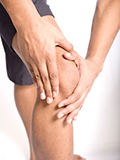- Locations
- Find a Physician
- By Physician
- By Department
- The Center for Spine Health
- Hand & Wrist Center
- Shoulder & Elbow Center
- Foot & Ankle Center
- Joint Replacement Center
- The Sports Medicine Center
- Pediatric Orthopedic Center
- Trauma & Fracture Center
- Osteoporosis and Bone Health
- Oncology Center
- Cartilage Repair Center
- Concussion Rehab Center
- OrthoDirect
- Careers
- Patient Portal
- Intranet
Teachers, Healers, Innovators
Mission: Provide the Highest Quality Orthopedic Care Integrated with World Class Education and Research.

Dr. Bassel Diebo and Dr. Alan Daniels
University Orthopedics in Providence, Rhode Island, is a regional referral center for patients with back and neck pain, joint pain, sports medicine problems, shoulder pain, hand problems, hip and knee pain, and foot and ankle injury.
UOI includes more than 40 board certified, fellowship trained musculoskeletal and sports medicine physicians. These specialists are faculty members of the Department of Orthopaedics at the Warren Alpert Medical School of Brown University who teach medical students, orthopedic residents, and fellowship subspecialty surgeons. University Orthopedics leads the way with Basic and Clinical orthopedic research on the latest advances in orthopedic surgery and injury prevention.
Our affiliation with Brown Alpert Medical School enables new orthopedic surgeons to learn the most advanced surgical techniques by working hand in hand with the experienced spine surgeons, hand surgeons, joint replacement surgeons, foot & ankle surgeons and sports medicine specialists at University Orthopedics.
We believe that the best quality healthcare comes from a well-informed patient. Consequently, we’ve developed here an online encyclopedia on orthopedic problems and treatments, including the realm of spine problems and sports medicine. Within this site you will find symptom charts, narrated videos on various treatments and surgical procedures, information on when symptoms need to be seen by a physician, and how to choose the best physician for your problem. You will learn how to make better medical decisions for your care, and if you need to get a second opinion for surgery, how to conduct that search for the right specialist.
How an academic affiliation improves patient care
Philosophically, University Orthopedics has for decades believed in the important connection between academic medicine, private practice and clinical research.
While some orthopaedic surgeons focus on the economic advantages of dedicating 100% of their time to private practice, the physicians at University Orthopedics believe that just as they benefited from the educational training they received early on in their careers, they should return the expertise they gain through private practice by educating those coming out of medical schools who in turn take their expertise into the community. This give-back to the community completes a circle of knowledge between the experience orthopedic surgeon and those who seek out fellowships with the best orthopedic groups in the nation.
Acting as the head of the Department of Orthopedics at Brown Alpert Medical School, University Orthopedics directs many clinical research efforts intended to innovate new orthopedic surgery techniques; new surgical implant devices that improve the success of various procedures; and new ways to prevent orthopedic injury.
For example, through Brown University’s Center for Restorative and Regenerative Medicine, researchers are involved in:
- The development of the next generation of advanced joint replacement implants, neurological control mechanisms and prosthetic devices.
- The development of new physicochemical techniques with biomaterials and cell-based therapies that enhance engineered tissues.
- The study of motion analysis and virtual reality as it relates to advanced rehabilitation of those with severe injuries.
Why experience matters
Medicine has become extremely specialized. Fifty years ago, an orthopedic surgeon represented the best specialist to deal with any injury to bone.
Rapid advances in every area of medicine over the past few decades, however, have made it impossible for a single physician in any medical specialty to be proficient across an array of injuries and problems. Surgical techniques and surgical equipment become more intricate. Minimally invasive surgical options enable a surgeon to access the inside of the body through cannula the width of a ball point pen. Through these cannula, a specialist will manipulate a tiny camera with incisor cutting blades to perform corrective surgery.
A traditional surgery from a general surgeon might require an open three inch incision – with all the associated disruption to muscles, tissues and tendons — and then several days in the hospital, and after that months of painful rehab to rebuild the disrupted tissues from the large incision. Conversely, the fellowship-trained specialist who makes a half-inch long incision, uses advanced surgical instrumentation to correct the injury, enables the patient to go home the same day to the comfort of their home. Rehabilitation is quicker, less painful and the person is back to their work, sport or recreational activity faster and with a better clinical outcome.
Consequently, because of the above benefits, every medical specialty has become “sub-specialized” with super specialists that have the most advanced expertise in their particular niche.
Twenty to thirty years ago, experience within various niches became commonplace within the field of orthopedics and as a physician moved through his career, he tended to become more adept with certain specialty areas. Today, it’s commonplace for a physician in his forties or fifties to have subspecialized in hand, knee, shoulder or spine — just by virtue of the thousands of patients he has seen and the thousands of surgeries performed.
As with anything else in life, practice makes perfect, and those who do the most of something become the most proficient. There is really no substitute for experience.

How a fellowship relates to training
For a younger physician leaving medical school today, however, it simply is not practical to spend 15 years garnering experience. So the process of gaining experience is compressed into a type of medical training called a “fellowship.”
In medicine, for example, fellowships represent the highest level of medical education in the world. Within the specialization of orthopedics, new physicians now pursue fellowships in the subspecialty niches of hand surgery, or spine surgery, or sports medicine, or joint replacement.
Within their fellowship, a physician spends an additional year before starting their private practice, working exclusively with other experienced orthopedic specialists, observing the most complex surgery on the worst-imaginable injuries, sometime brought in by helicopter from a wide geographic. This can mean that by the time the orthopedic surgeon is leaving his formal medical training, he is nearly 30 years old. So while other people enter their careers at age 18 after high school, or 22 after college, or 24 after graduate school, a fellowship-trained subspecialist in medicine leaves school much later in life, more mature, better trained, but often with several hundred thousands of dollars in medical school debt, and a lot of catching up to do.
The expertise from a fellowship, however, is of great value to a patient with a particular injury. A general orthopedic surgeon might only be presented in the emergency room an extremely complex spinal injury one time in year, while during a spine fellowship an orthopedic surgeon is exposed to these types of injuries several times a week.
This is because a center like University Orthopedics, by virtue of its array of subspecialists, is often referred the most complex orthopedic injuries from across Rhode Island, Connecticut and Massachusetts.
Within a spine surgery fellowship, for instance, an orthopedic fellow would assist an experienced spine surgeon in treating the most severe spinal injuries. A fellowship within spine that focused on scoliosis and spinal deformity, would expose the orthopedic surgeon to the most extreme spinal curves and the most current minimally invasive scoliosis correction surgical instrumentation.
The Clinical Care Centers at University Orthopedics
Because of this super specialization in orthopedics, University Orthopedics is organized into CLINICAL CARE CENTERS which provides patients across Rhode Island — Providence County, Kent County, Washington County, Bristol County and Newport County — the most specialized care related to their orthopedic injury or pain symptom.
The Extremity Care Center addresses the following problems:
- Hand pain, carpal tunnel, broken fingers, wrist injury
- Arm fractures, elbow pain, tennis elbow
- Broken legs (femur and tibia fractures)
- Knee pain, torn ACL, torn MCL, torn PCL, torn MCL, meniscus problems, knee cap injury
- Shoulder pain, rotator cuff problems, ligament strain
- Foot and ankle pain, foot & ankle fractures, Achilles tendon problems
- Other types of ligament strains and pain symptoms related to arm/elbow/hand and leg/knee/foot.
The Joint Replacement Center addresses the following problems:
- Hip replacement
- Knee replacement
- Shoulder replacement and reverse shoulder replacement
The Center for Spine Health addresses the following problems:
- All types of muscle & ligament strain related to the back and neck
- Radiating pain from the back into the legs and foot
- Radiating pain from the neck into the arm and hand
- Weakness in a foot or hand caused by back or neck disc problems
- Herniated or bulging discs
- Sciatic nerve issues
- Loss of control of bowel or bladder (cauda equina) caused by emergency back problems
- Curvature of the spine (scoliosis or kyphosis) and corrective treatment with braces or
- Scoliosis surgery
- Spinal tumor
The Sports Medicine Center can overlap and interface with any of the above specialty centers providing non-surgical and surgical treatment, and injury prevention, specific to:
- Professional athletes who need to be treated quickly to return quickly back to competitive sports for the benefit of their sports career and earning ability
- Non-professional athletes and active men and women who are concerned with being able to return to their favorites sports like tennis, golf, water sports, running and other recreational activities
- Injury prevention and dealing with overuse syndrome to reduce the likelihood of future injury
Across all these clinical “care centers” is a physical therapy team that provides customized therapy for each body part. This includes a therapy gym,and therapists in our outlying satellite locations.
To schedule an appointment with any University Orthopedics physician, please call the Appointment Coordinator at (401) 457-1500.
Testimonial - Eloise's Story
Hip Spine Syndrome left Eloise perpetually bent over. After years of suffering and multiple doctor visits, she met University Orthopedics' spine surgeon, Dr. Alan Daniels and Dr. Bassel Diebo - two of the few people who could actually treat her issue. Here's her myUOIstory








